As I write this, it’s Election Day. I set my alarm for 6:15 in order to be at my polling place when the doors opened at 7 am, anticipating a quick in-and-out. Instead I waited for over an hour in the cold, flanked by young voters. While I’m hugely relieved to see the end of a nerve-wracking campaign season, I’m on pins and needles awaiting the outcome. I desperately want this election settled. I want to be done with nonstop election news that leaves me emotionally drained. I want to move on.
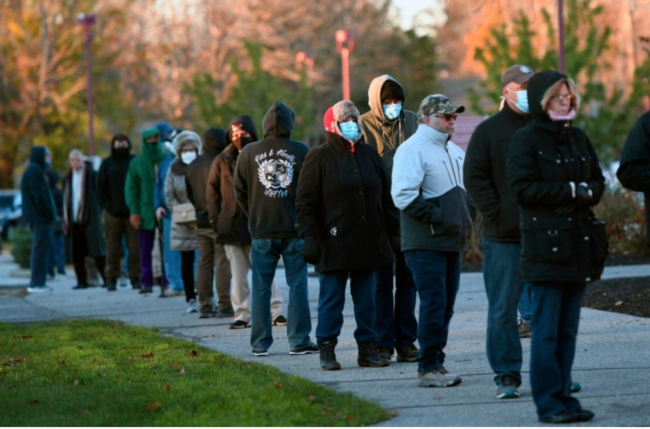
Portland, Maine Early Bird voters
How do we move on in a Covid dominated world punctuated by the prospect of a locked-down winter?
Will we exist on Zoom conversations, occasional outdoor meet-ups with friends, Netflix binges and trying out new recipes? While this is a tempting scenario, we can’t move forward as a country if we turn our backs on our long list of social ills.
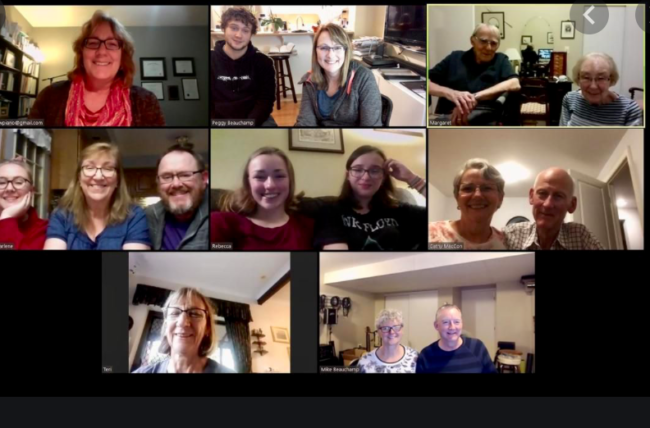
Zoom has been a lifeline for families during Covid
Before re-engaging with society, we all need a breather in the form of a post election time-out, making space for meditation, time in nature, preparing comfort food and sending love notes to family and friends.

Time in nature can be an effective post-election survival tool
Once ready to re-enter the social melee, we will face the divisions left over from the campaign. Trump supporters may continue to spew hate messages. Democrats, in turn, may write off the Trumpies as low life. If we want a united country, we have to address our differences.
Mending fences will be an uphill battle. It will require both sides to view the other with compassion.
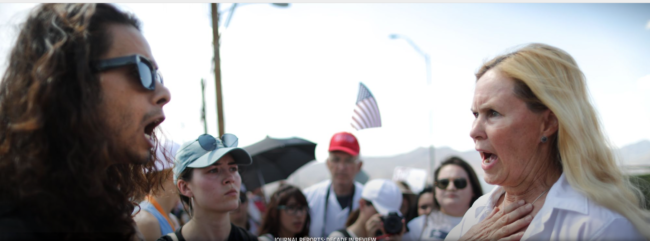
This past summer I met a woman Trump supporter, who didn’t fit the stereotype of an irrational crazy. I entered into conversation with her at the farmer’s market, where we discovered a mutual fondness for the same locally produced goat cheese. With election banners all around us, I asked her how she was going to vote. Her answer, “I’m voting for Trump because he cares about working people.” When I offered that I would vote Democrat, she commented, ‘I feel so badly that we can’t all get along.” Her comment was humbling, forcing me to recognize that many liberals and progressives have written off Trump supporters as unapproachable and heartless.
I told my Trump acquaintance that I shared her concern for the lot of working people. Maybe this is a place to start? Ferreting out common ground through Zoom conversations led by community groups and religious organizations.

Addressing one’s political prejudices is only part of the solution. It’s equally critical to engage with our catastrophic social problems before they do us in. Record numbers of Americans are out of work, unable to pay their rent and/or their doctor bills, or feed their kids, while our climate crisis grows exponentially, as evidenced by last summer’s record heat waves and the rapid extinction of many animal species.
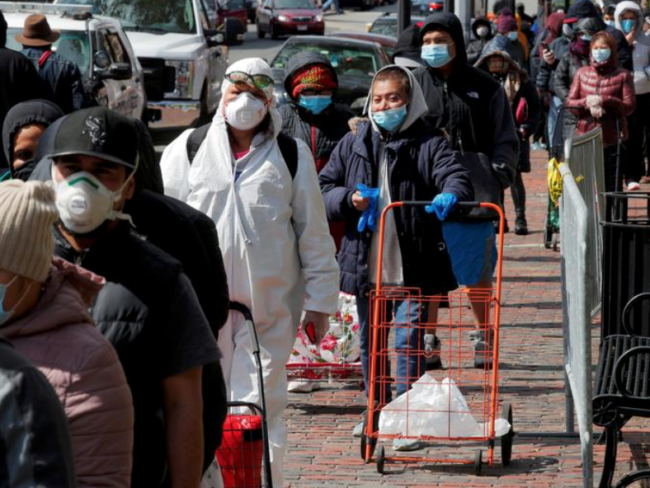
Covid related unemployment has left cash-strapped Americans waiting hours for free food.
I haven’t quite figured out how to be a concerned citizen given the limitations posed by Covid. This much I know: I can participate in Zoom political organizing. I can send money to groups like the teen-led climate activist group, The Sunrise Movement, and to the ACLU for their legal bills as they prepare court challenges to fight voter suppression, and laws that discriminate against people of color and women.
As an elder I want to do my part for future generations. When I think about the world my grandchildren will inherit, I well up with tears. We owe our children and grandchildren a society based on compassion, where income inequality is addressed, where the skies are clear and where endless wars are a thing of the past.
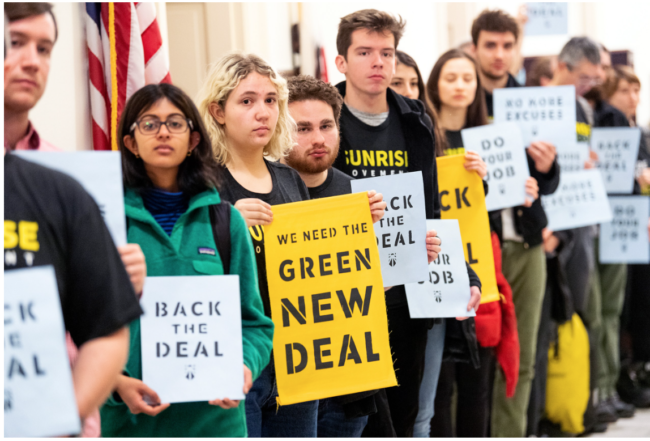
It’s a big order, but if we band together, we can make a difference. Solidarity is empowering. It fosters hope. I take refuge in the saying, ‘There are more of us than there are of them.’ Numbers are on our side, if we don’t retreat into our bubbles.






